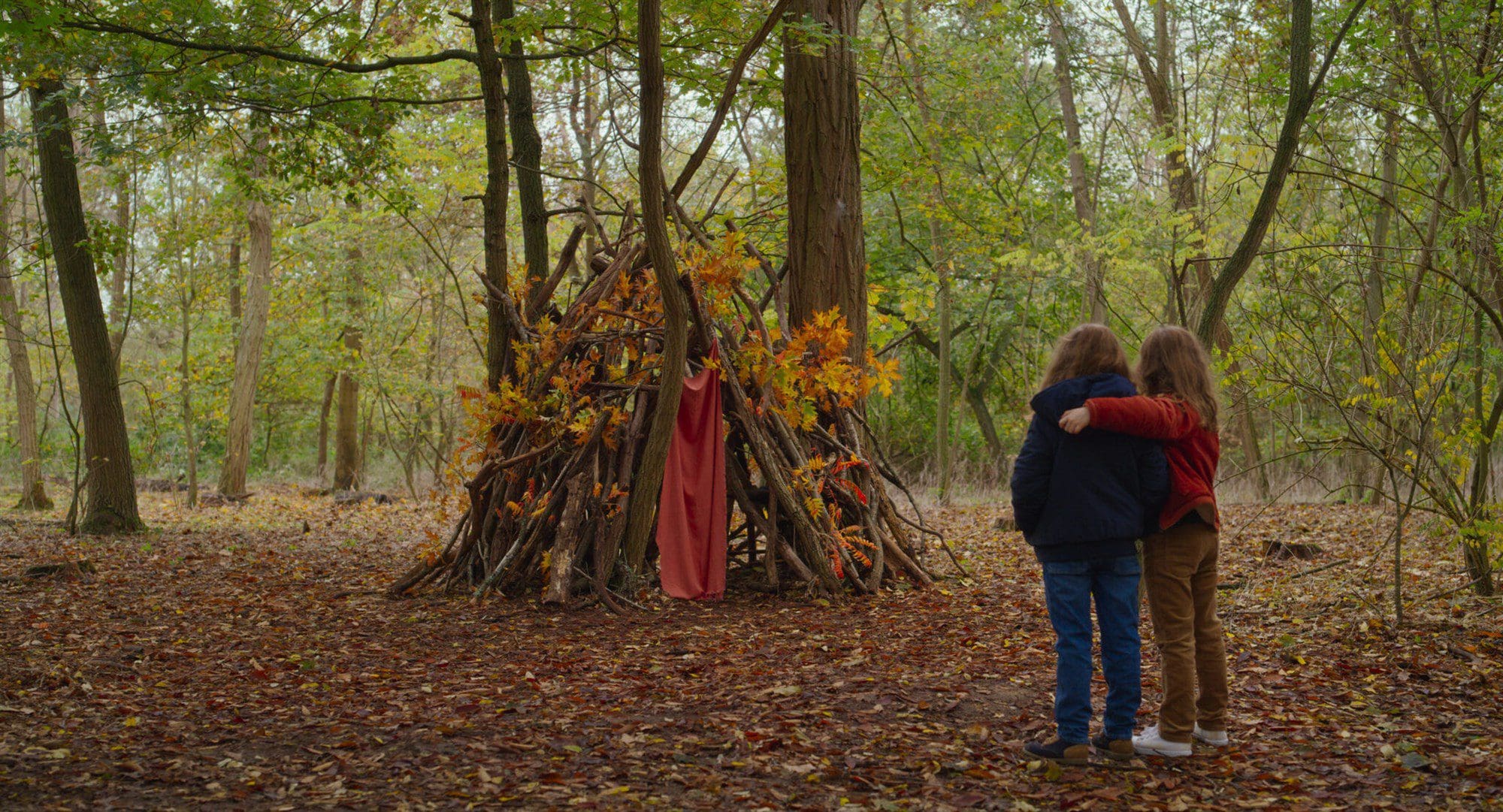
After setting the film world ablaze in 2019 with her epic romance masterpiece, Portrait of a Lady on Fire, Celine Sciamma returns with a smaller, calmer story about love and connection with Petite Maman. Its deep emotional themes of connection and love stem from the story of Nelly (Josephine Sanz), a young girl who’s just lost her grandmother. After going to her grieving mother’s (Nina Meurisse) childhood home to clean out her grandmother’s things, Nelly meets another young girl named Marion (Gabrielle Sanz), who is actually a younger version of her mother, and through this time-bending encounter, Nelly begins to form a deeper loving connection with her mother.
The cinematography from Claire Mathon is subtle and simple on the surface but ends up playing a major role in the film’s calming tone. Every trip into the woods has a nice mix of fantasy, feeling seemingly endlessness, but is grounded by how Nelly and Marion interact within the setting. The hut the two build together continues the great mix of fantasy and reality with how massive and impactful it feels while still maintaining a personal, feasible sense of accomplishment. It’s the kind of environment that’s almost nostalgic in how Nelly and Marion play around in it while also being incredibly peaceful.
Sciamma’s choice in telling a story with children as the leads works super well in this setting, as their innocence and friendliness instantly tug at your heart and bring out the child within. The Sanz twins’ real-life relationship really comes through in Nelly and Marion’s friendship and creates some delightfully charming moments. There’s an immediate sense of glee in them simply running around the woods and just having fun together. They come up with a noir story together that’s easily a big highlight in the film and watching them act it out is genuinely a hoot. There’s just this super nostalgic feeling full of heart that emanates from Nelly and Marion and its great how Sciamma keeps things honest in their time-bending connection.
Rather than keep the idea that Marion is a younger version of Nelly’s mother a secret from us or the characters, Sciamma lets the cat out of the bag early and it works in building out the themes and central friendship better. There’s honestly no need for any suspense or mystery surrounding the time connection and it creates some fun moments of these two worlds colliding. It’s great to see Nelly and Marion be able to interact within each other’s worlds freely and there are moments between them and their parents, minus Nelly’s adult mom of course, that are unique. It’s just a smart subversion of choices we’ve seen in this story frame before and it helps build little surprises throughout the film.
Even though Petite Maman is a smaller film for Sciamma, it still contains big emotional moments of Nelly and Marion coming to terms with their respective grief and fears through their budding friendship. Upon initially meeting Nelly and her adult mom, there’s a clear charm the two have together but also some separations and they can be kind of closed off about their emotions. That’s what makes Nelly being able to talk to young Marion so special, as it allows for her to find a way to open up about her grief and develop a more open relationship with her mother. It’s a great showing of the value of a meaningful friendship and finding people to open up to and gain understanding from. Once they grab your heart at the start, they really never let go and the final moment between Nelly and her adult mom is one that leaves a lasting impact because of the sweet, simple, and truly tender moments of love displayed. By the end, you feel that you’ve watched what many would hope and dream a live-action Studio Ghibli film would feel like, which is a testament to Petite Maman’s relatability and heart.
Petite Maman is an excellent showing of Sciamma’s storytelling and filmmaking mastery as well as the perfect kind of follow-up to Portrait of a Lady on Fire. Big things can come in small packages and Sciamma has packaged a heartwarming ode to friendship in this small, intimate experience.

